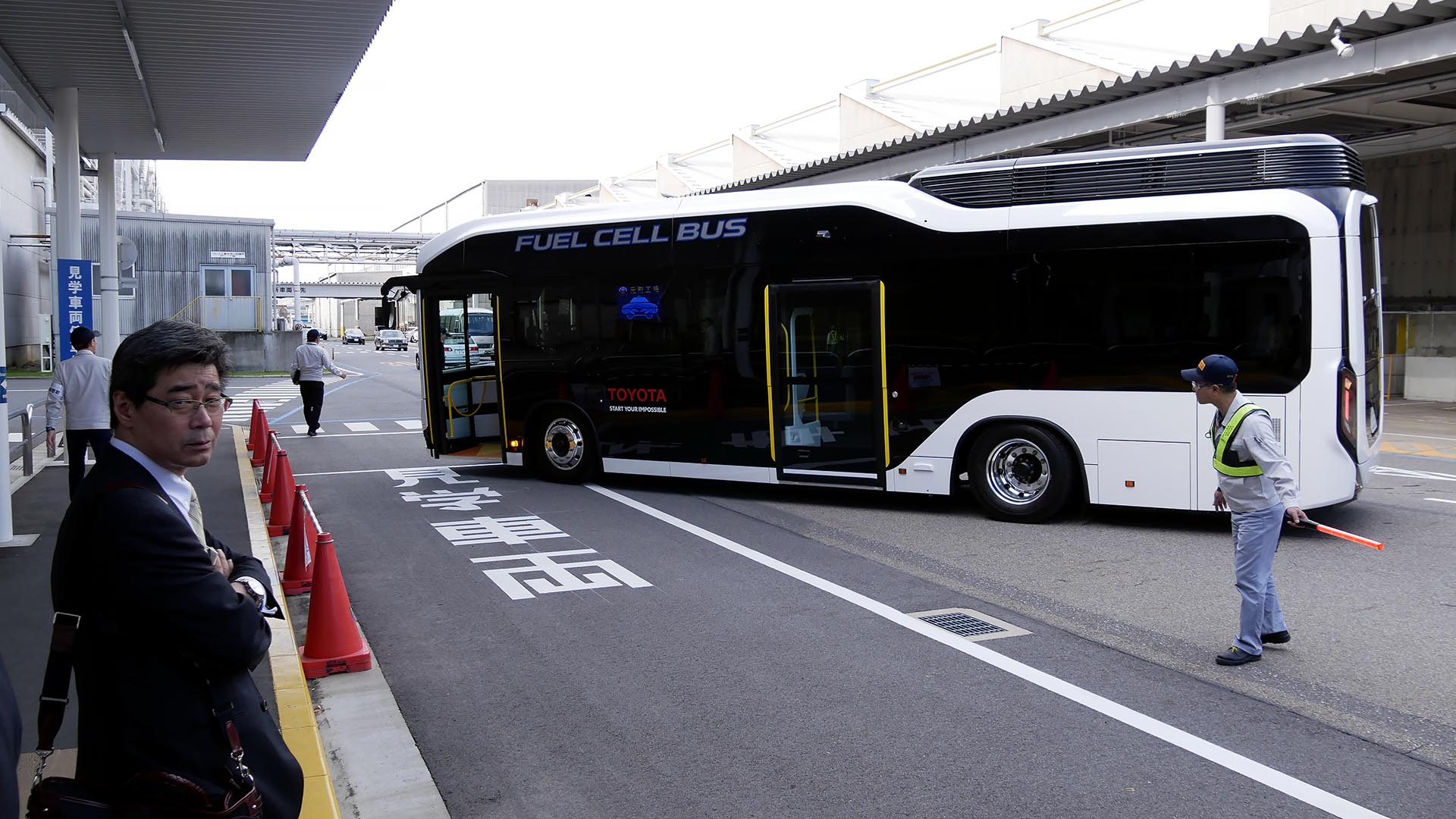

China is not only the world’s biggest auto market, it also is the biggest market for electric vehicles. China pivots away from subsidizing battery-electric vehicles, and is putting its government money on hydrogen. The strategy is bearing fruit for persistent hydrogen-booster Toyota. The Japanese carmaker says it will supply key fuel-cell technology to China’s FAW and Higer Bus. Both are major players in the truck and bus segment.
The fuel-cell components will go first to Shanghai-based Re-Fire Technology, which will act as the systems integrator. Re-Fire will use the fuel-cell parts to assemble powertrains for fuel-cell powered buses.
According to Toyota spokesperson Kayo Doi, this move is “a 2nd step in the initiative to contribute to the FCV popularization and realization of hydrogen society in China.”
China’s BEV-to-FCV pivot was triggered during a fence-mending visit of Chinese Premier Li Keqiang to Japan in 2018, where old grievances over uninhabited rocks in the South-China Sea were forgotten in the face of a serious trade war between Donald Trump and the rest of the world, notably China, Japan, and Europe. During the trip, Li was shown around Toyota’s production sites, where he learned from Toyota CEO Akio Toyoda that the Mirai FCV takes only minutes to fuel for a driving range of 650km (400 miles).
After the trip, Chinese ministries were ordered to get on the FCV bandwagon, and they did, with a speed only possible in China. In April, Toyota said it would supply its fuel cell vehicle technology to Beijing Automotive Group (BAIC), a deal that also was triggered by Li’s Japan trip, as The Nikkei reported. Toyota said it is supplying fuel-cell parts to BAIC group company Beiqi Foton and hydrogen-pioneer Beijing SinoHytec.
Also in April, Wan Gang, the architect of China’s electric vehicle push, put his considerable weight behind fuel cells. “The fuel cell is the future development direction,” Wan Gang said at the Shanghai Auto Show. Former Audi engineer Wan Gang was president of Shanghai’s Tongji University, which had EV prototypes at its Anting Automotive College before Elon Musk launched its first Tesla Roadster. Gang was made Minister of Science and Technology in 2007, a post he held until last year.